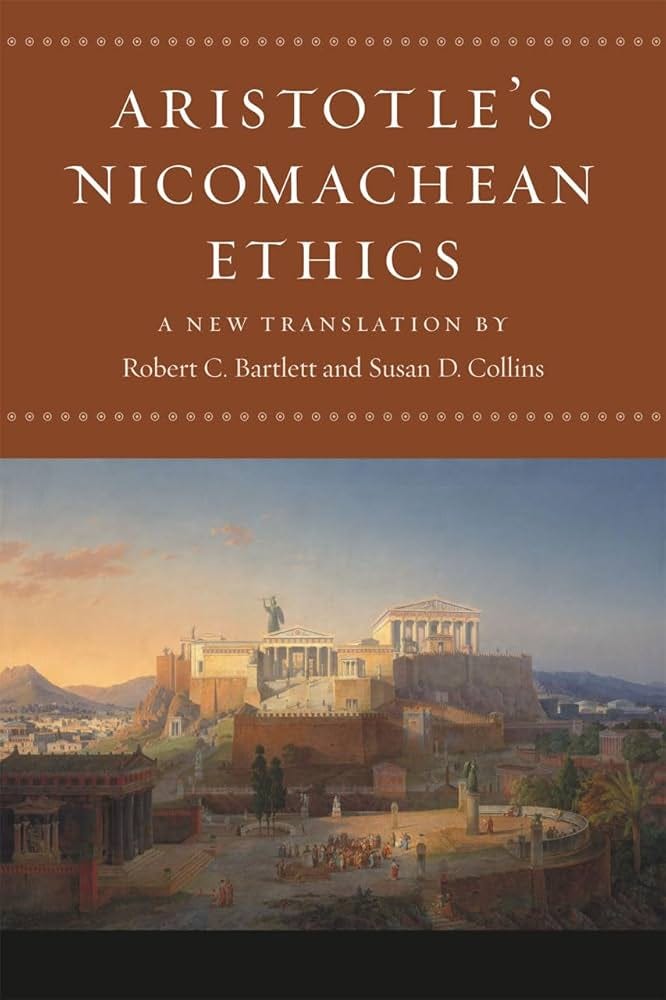Books Worth Your Time, Vol. 7
Cromwell returns; tradition turns apocalyptic; we consider idleness; I praise Aristotle yet again.
Two quick notes before we begin.
On September 15 at 8 PM Eastern, we’ll have our last members-only Zoom call about Aristotle’s Nicomachean Ethics. To join that discussion, become a paying subscriber.
In October, we’ll begin our read-along of Virginia Woolf’s Mrs Dalloway. Those posts are, of course, always free. I’ll be announcing a schedule soon.
The New York Times recently published their list of the 100 best works of fiction of the 21st century — a bit prematurely, given that we’re only 24 years into this century, but I did find the list enjoyable anyway. As I looked through the list, seeing all the books I have read and the (many more) books I need to read, I remembered that I have not written a volume of Books Worth Your Time in nearly 2 months.
So, let’s talk about some books worth your time.
Bring Up the Bodies by Hilary Mantel
As I have progressed in Mantel’s Cromwell trilogy – which begins with the wonderful Wolf Hall, featured in Vol. 3, and of which Bring Up the Bodies is the second installment – I have come to a conclusion: Mantel is a master of the craft. She may in fact be one of the true greats, the sort of writer whose work deserves to be read for generations. She should be on the standard curriculum, listed right before Marlowe and Melville.
I am a jealous man. When I read a great book, I am sometimes overcome with envy. I wish I could write prose like Mantel. I wish I had that in me. (Maybe I do — I certainly haven’t worked hard enough! But in truth, I do not.) Yet, Mantel’s work is so fresh, so effortless, so lively…I cannot sustain my feelings of jealousy. I am simply in love.
Sometimes critics and readers have described Mantel as a writer of great Tudor fiction, or, more generally, of great historical fiction. This is true but incomplete. She is simply a great writer of great fiction, no genre qualifiers needed.
Wolf Hall and Bring Up the Bodies were both winners of the Booker Prize, but the third installment in the Cromwell trilogy, The Mirror & The Light, was merely longlisted. I cannot speak of the third volume yet, but I suspect this is a travesty.
Vita Contemplativa by Byung-Chul Han
“Being connected is not the same as being together,” Byung-Chul Han writes in Vita Contemplativa, his latest book, and this is just one of the beautifully simple lines Han treats the reader to throughout tht work. The book is a meditation on being still, on doing nothing. That is a message many of us need to hear.
His style – short sentences comprising short books, laden with references and meaning – makes him easy to enjoy but difficult to fully grasp, so be warned.
Aristotle’s Nicomachean Ethics
Did you know that I love Aristotle’s Nicomachean Ethics? This may not be a surprise to you, given that we just read the book together over the course of the summer. For details about that, go here and read all of those posts — they are freely available. If you followed along with me, you’ve already read the book.
I want to encourage you to read it again. Maybe not today, or even this year, but soon enough. I find myself returning to Aristotle regularly, and I am always learning more. I think you will find the same.
The Kingdom by Emmanuel Carrère
I have only just started this novel, and usually my policy is to finish the thing before I share it. But what I have read so far has so gripped me that I believe we can make an exception.
Keep reading with a 7-day free trial
Subscribe to Commonplace Philosophy to keep reading this post and get 7 days of free access to the full post archives.







